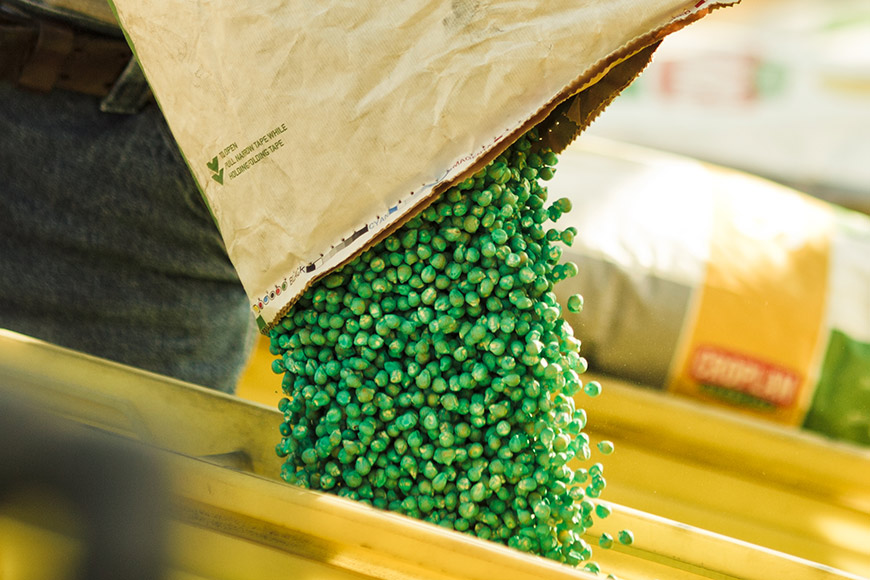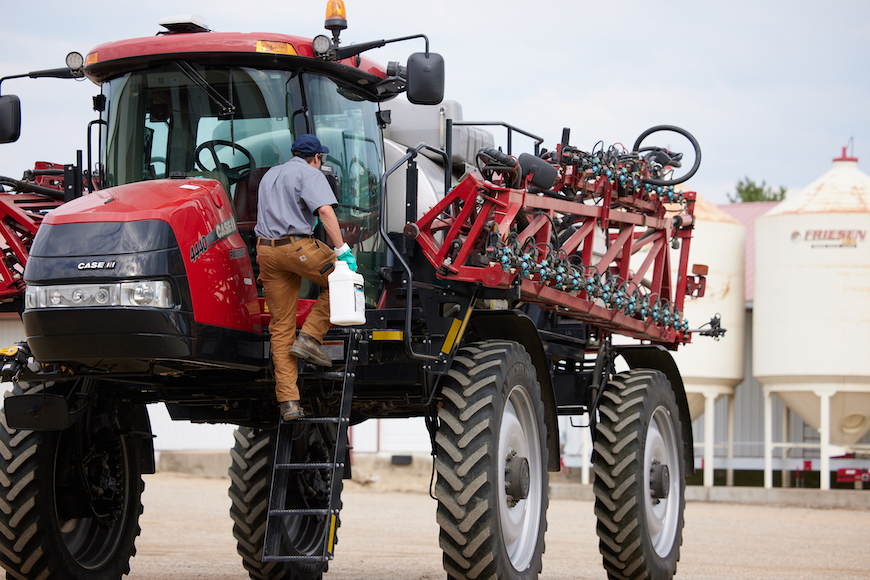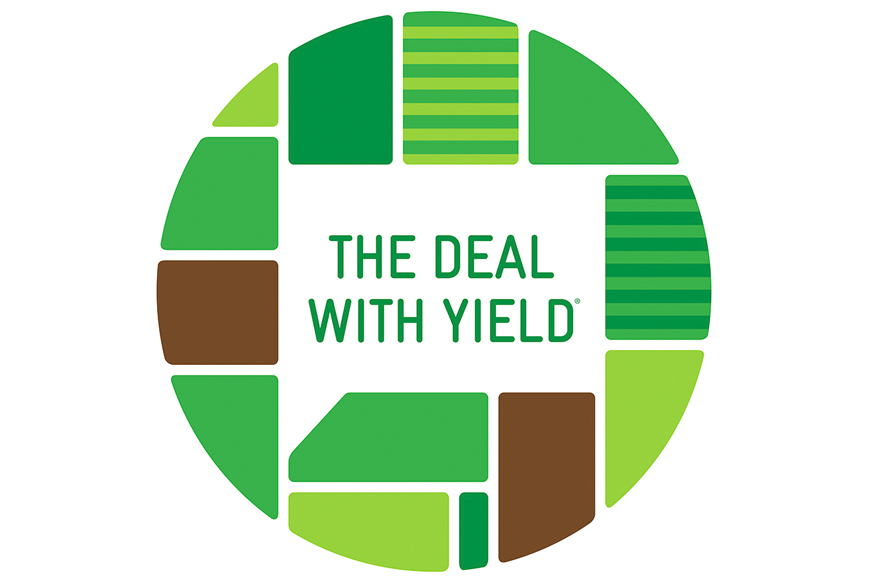Questions to Ask When Selecting Corn Seed Treatments

After you’ve selected the right hybrids to match your fields’ conditions, you have another important decision to make: which seed treatment can give your crop the best early-season start? Asking a few key questions can help you narrow your corn seed treatment search and help set the stage for achieving 2022 yield goals.
Seed treatments help ensure that the highest percentage of seed germinates and emerges consistently, influencing the number of ears and amount of kernels produced per acre for the return you expect from your seed investment. Selecting a seed treatment can help mitigate early-season risks, such as planting into cool, wet soils, and defends the seed against soilborne insects and fungal diseases. Protecting against these early-season stressors is critical for preserving late-season yield potential.
Nearly all CROPLAN® hybrids include Fortivent® Plus seed treatment. It combines the early-season insect control of Poncho® VoTiVo® seed treatment, fungicides including ethaboxam for enhanced pythium control and Fortivent® Zn seed treatment for early corn development, including stand establishment and improved yield potential. Plus builds on the foundation of Fortivent Zn, which has been shown in Answer Plot® trials to improve yield for treated hybrids by an average of 4.7 bushels per acre compared to untreated hybrids.*
Discuss these questions with your local WinField® United advisor for help finding answers and selecting the right seed treatments for your operation.
*2018 Answer Plot data, 41 Midwest locations.
All photos are either the property of WinField United or used with permission.
© 2022 WinField United. Important: Before use always read and follow label instructions. Crop performance is dependent on several factors many of which are beyond the control of WinField United, including without limitation, soil type, pest pressures, agronomic practices and weather conditions. Growers are encouraged to consider data from multiple locations, over multiple years and to be mindful of how such agronomic conditions could impact results. Answer Plot, CROPLAN, Fortivent and WinField are trademarks of WinField United. All other trademarks are the property of their respective owners.
What value can corn seed treatments provide?
Return on investment is always top of mind when considering crop inputs. Since your seed purchase is one of the largest input costs you’ll face, it’s important to protect that investment.Seed treatments help ensure that the highest percentage of seed germinates and emerges consistently, influencing the number of ears and amount of kernels produced per acre for the return you expect from your seed investment. Selecting a seed treatment can help mitigate early-season risks, such as planting into cool, wet soils, and defends the seed against soilborne insects and fungal diseases. Protecting against these early-season stressors is critical for preserving late-season yield potential.
Do seed treatment benefits apply across all maturity ranges?
Whether you’re planting early, mid or later corn maturities, each variety can face its own set of challenges as crops emerge. While planting into early, cool, wet conditions presents high levels of disease stress, warmer conditions may add tough insect challenges. Seed treatments can add protection at each planting stage.Which seed treatments make sense for my cornfields?
Begin your seed treatment search by analyzing the soil, environmental, disease and insect challenges in your fields to determine what protection is needed. Most corn hybrids include a standard fungicide and insecticide seed treatment for protection against common threats.Nearly all CROPLAN® hybrids include Fortivent® Plus seed treatment. It combines the early-season insect control of Poncho® VoTiVo® seed treatment, fungicides including ethaboxam for enhanced pythium control and Fortivent® Zn seed treatment for early corn development, including stand establishment and improved yield potential. Plus builds on the foundation of Fortivent Zn, which has been shown in Answer Plot® trials to improve yield for treated hybrids by an average of 4.7 bushels per acre compared to untreated hybrids.*
Discuss these questions with your local WinField® United advisor for help finding answers and selecting the right seed treatments for your operation.
*2018 Answer Plot data, 41 Midwest locations.
All photos are either the property of WinField United or used with permission.
© 2022 WinField United. Important: Before use always read and follow label instructions. Crop performance is dependent on several factors many of which are beyond the control of WinField United, including without limitation, soil type, pest pressures, agronomic practices and weather conditions. Growers are encouraged to consider data from multiple locations, over multiple years and to be mindful of how such agronomic conditions could impact results. Answer Plot, CROPLAN, Fortivent and WinField are trademarks of WinField United. All other trademarks are the property of their respective owners.





